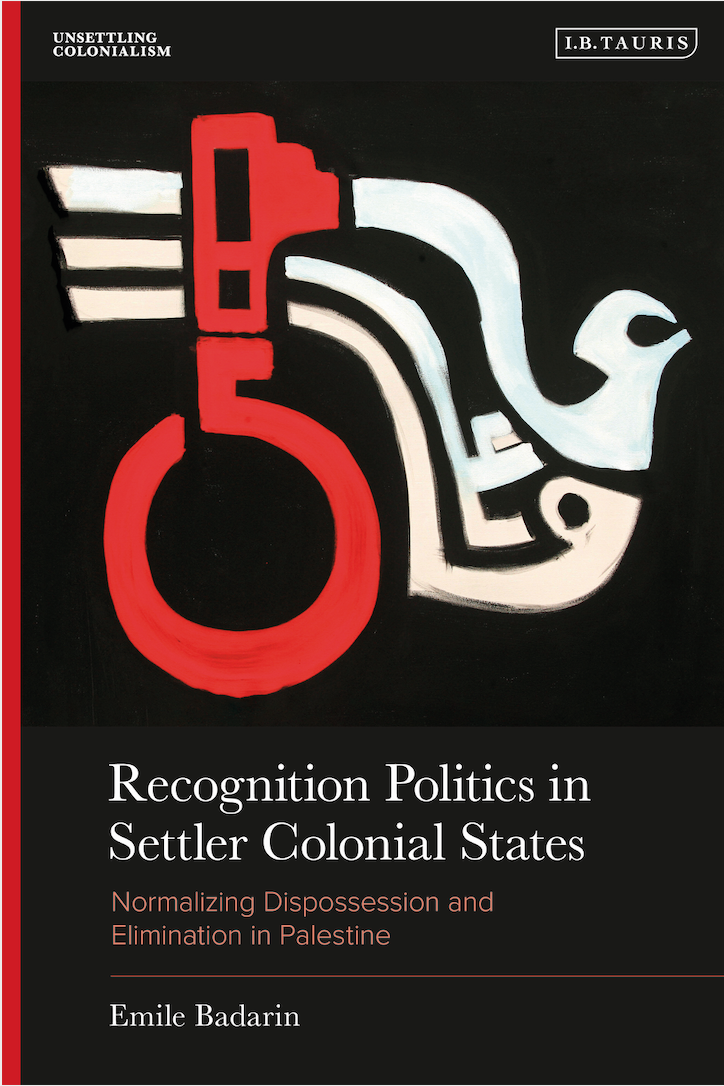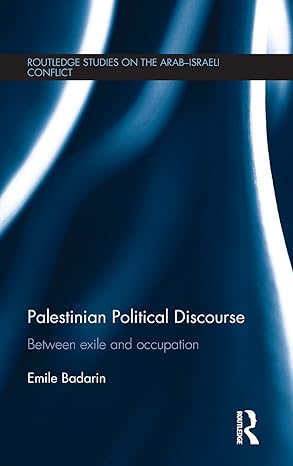Recognition Politics in Settler Colonial States
Normalizing Dispossession and Elimination in Palestine
This book shows how recognition politics operate to legitimize long-standing colonial power structures. In existing scholarship, recognition has been seen as an asset coveted by indigenous communities. The book forwards a new, theoretically ground-breaking perspective. It shows that in colonial contexts, settlers use recognition to legitimize and normalize the dispossession and elimination of Indigenous people. More than this, settler-colonial states themselves actively pursue recognition, employing it as a means to further the elimination of the indigenous societies they seek to replace.
In making the case, the book critically examines the Euromodern categories of race, racism and racial hierarchies and draws new conclusions about the interplay between colonialism, racism and Zionism. Central to this analysis is how anti-Zionism has been strategically equated with anti-Semitism, and effectively used as a tool for the advancement of both settler-colonialism in Palestine and Israel’s recognition politics on the international stage. The book delves into indigenous normative resistance against colonial recognition politics through the lens of the Palestinian practice of ṣumūd (steadfastness), extracting its philosophy of liberation as a pathway towards a decolonial future for all in Palestine and beyond.

Cite as: Badarin, E. (Forthcoming June 2025). Recognition Politics in Settler Colonial States: Normalizing Dispossession and Elimination in Palestine (I.B. Tauris: London)
The book can be preordered on: Bloomsbury, Amazon, Waterstones
Reviews
Recognition and misrecognition have been crucial to enabling and furthering colonial subjection. They still are, and Emile Badarin insightfully unpacks the operation of this dynamic. Could a systematic focus on recognition contribute to finding an ethical way out of the current disaster in Palestine?
Lorenzo Veracini, Professor, Swinburne University of Technology, Australia
* * *
Recognition Politics in Settler Colonial States by Emile Badarin brings the world up to speed with how dispossession and elimination is sought to be normalized in Palestine. What Zionists have historically failed to understand is how the Palestinian child they torment and force to remove and deny the living insignia of their historic pride of place will grow up, master a defiant prose, and come back to raise that flag even higher for the whole world to see… Emile Badarin’s bold, brilliant, and defiant voice in this book is the voice Israel and its US and European handlers have failed to silence and suffocate!
Hamid Dabashi, Professor, Columbia University, USA
Palestinian Political Discourse
Between exile and occupation
This book presents an in-depth examination of Palestinian political discourse since an-Nakba in 1948 and stitches together the underlying mechanisms and rules that have shaped Palestinian politics, in turn synthesizing, interpreting and scrutinizing these rules. Studying the question of Palestine discursively offers new ways to rethink political agency, structures, identity, institutions and power relations while interpreting Palestinian actions. This book adds new understanding to Palestinian political agency by explaining how political actions were constructed. Discourse analysis methodology underlies the critical examination of the genealogy of concepts and frames that have oriented Palestinian political thought. Contrary to established views that ascribe shifts in Palestinian politics primarily to external factors and international changes, this book demonstrates how transformation has been a continuing inbuilt feature within the discursive regime and that dramatic shifts were only effects of much deeper, slowly evolving changes.
Examining discourse, and thus language, offers an exceptional possibility to see from the Palestinian perspective. As such, this book provides material vital to the deeper interpretation of the Palestinian question. It will be a valuable resource for students and scholars of Israel-Palestine studies, Middle East studies, and discourse analysis.

Cite as: Badarin, E. 2016. Palestinian Political Discourse: Between exile and occupation. London: Routledge.
Reviews
Overall, then, in both its close attention to the detail of Palestinian discourse as well as in its attempt to offer a politically coherent analysis of the evolution of this discourse, Badarin’s book has much to offer as a contribution to our understanding of the plight, history and present needs and aspirations of the Palestinian people. All in all, then, the book is an original, and strongly argued, contribution to our understanding of Palestinian history and politics from the discourse end. Read more.
Peter E. Jones, Professor, Sheffield Hallam University, UK